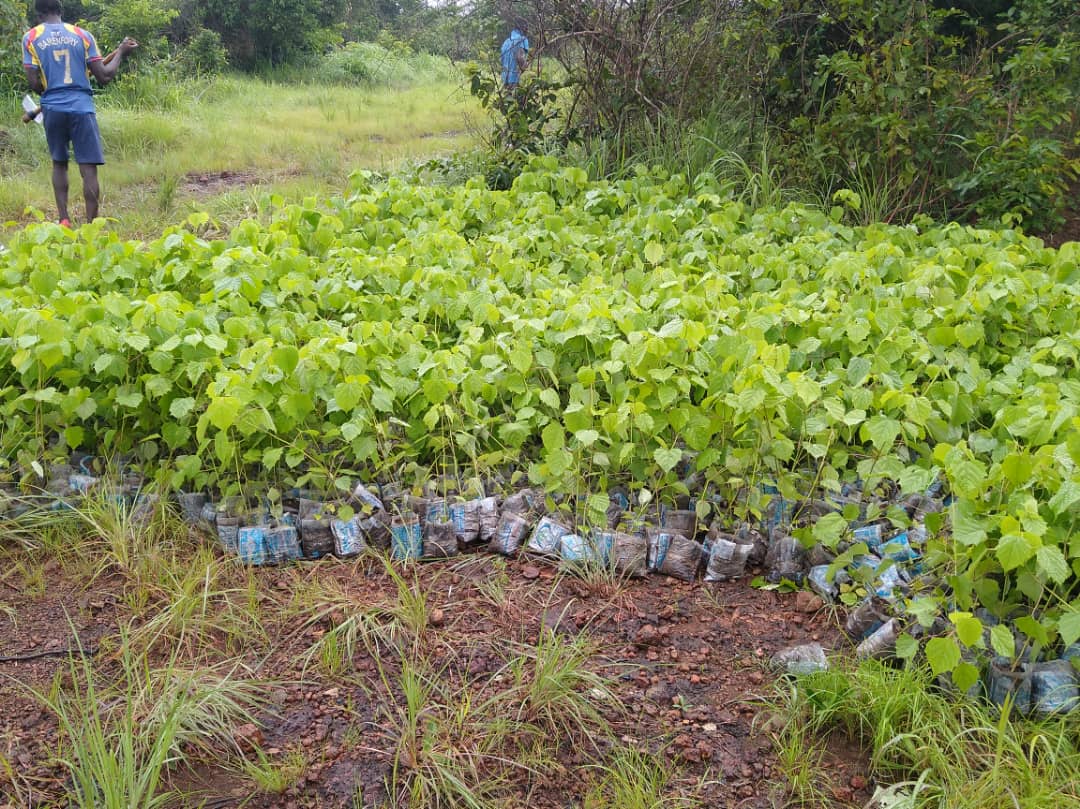Supporting Forest Buffer Communities in Kindia Region of Guinea (Kindia Biodiversity Activity), 2019-2020
Donor:
USAID through West Africa Biodiversity and Climate Change (WA BiCC)
Goal
The goal of this project is to improve the livelihoods of forest buffer communities in the Kindia region of Guinea through the involvement of a fruit producer and exporter to create sustainable and environmentally friendly economic alternatives, and build community awareness and sensitivity to biodiversity conservation and reforestation.
What we do
EUCORD is partnering with the USAID-funded West Africa Biodiversity & Climate Change (WA BiCC) program to implement the Supporting Forest Buffer Communities in Kindia Region of Guinea project.
The European Cooperative for Rural Development (EUCORD) will work with La Fruitiere de Daboya (CFD), one of the rare agribusiness companies located in the region of Kindia. Together, EUCORD and CFD have developed a consortium approach to address the local communities located near the forested areas who are constrained by lack of economic activities and poor access to markets. The project also aims at sensitizing local communities on biodiversity conservation to prevent the expansion of practices causing additional deforestation and/or encroachment on protected areas.
The support is used to:
- Engage those that are causing the deforestation, in mango and pineapple production, so they have economically viable alternatives to support improved livelihood (in cooperation with local agriculture services and the Kindia forestry services).
- Set up a nursery for mango, pineapple and forest tree seedlings.
- Promote sustainable management practices for mango and forest tree plantations.
- Establish a plantation of at least 50 hectares of diversified tree species as contribution to the sustainable management of the Kindia landscape.
- Sensitize communities to plant and maintain tree diversity through agroforestry (pineapple cultivation associated with reforestation activities).
EUCORD will use a participatory approach that directly involves forest buffer communities in assessing local biodiversity, identifying trends regarding changes in local biodiversity, identifying the types of activities needed to develop the mango and pineapple value chains in an environmentally sustainable manner.
Producers working with CFD and key stakeholders working alongside forest buffer communities will be strengthened at three levels: (i) biodiversity conservation, natural resources management (NRM), (ii) good agriculture practices and post-harvest handing, and (iii) nursery development.
Accomplishments
The project was initially supposed to last for 8 months, but was authorized to extend the implementation period to 13 months (from August 2019 to August 2020) so that it could take advantage of the 2020 rainy season and mitigate the constraints created by the health emergency resulting from the COVID-19 pandemic. Despite these constraints, the EUCORD team was able to achieve the project objectives, working in conjunction with the team from CFD, the network of 12 trainers, technical agents from the Water and Forestry services (SEF), producers affiliated to CFD and members of the NRM committees supported by the project. We even exceeded the objective of reforesting 50 hectares of land, having replanted 10 hectares in 2019 and 41.6 hectares in 2020.
The capacity building and sensitization targets were also exceeded:
- A total of 841 people were sensitized in small groups during the sensitization/planting days (the target was 500).
- The 12 rural trainers trained 122 people (target of 88), 88 of whom were subsequently selected to participate in planting/outreach activities.
- Thirty (30) Natural Resource Management Committee members were trained (as planned).
- Twelve (12) trainers were trained (as planned).
A final summary report can be downloaded here






